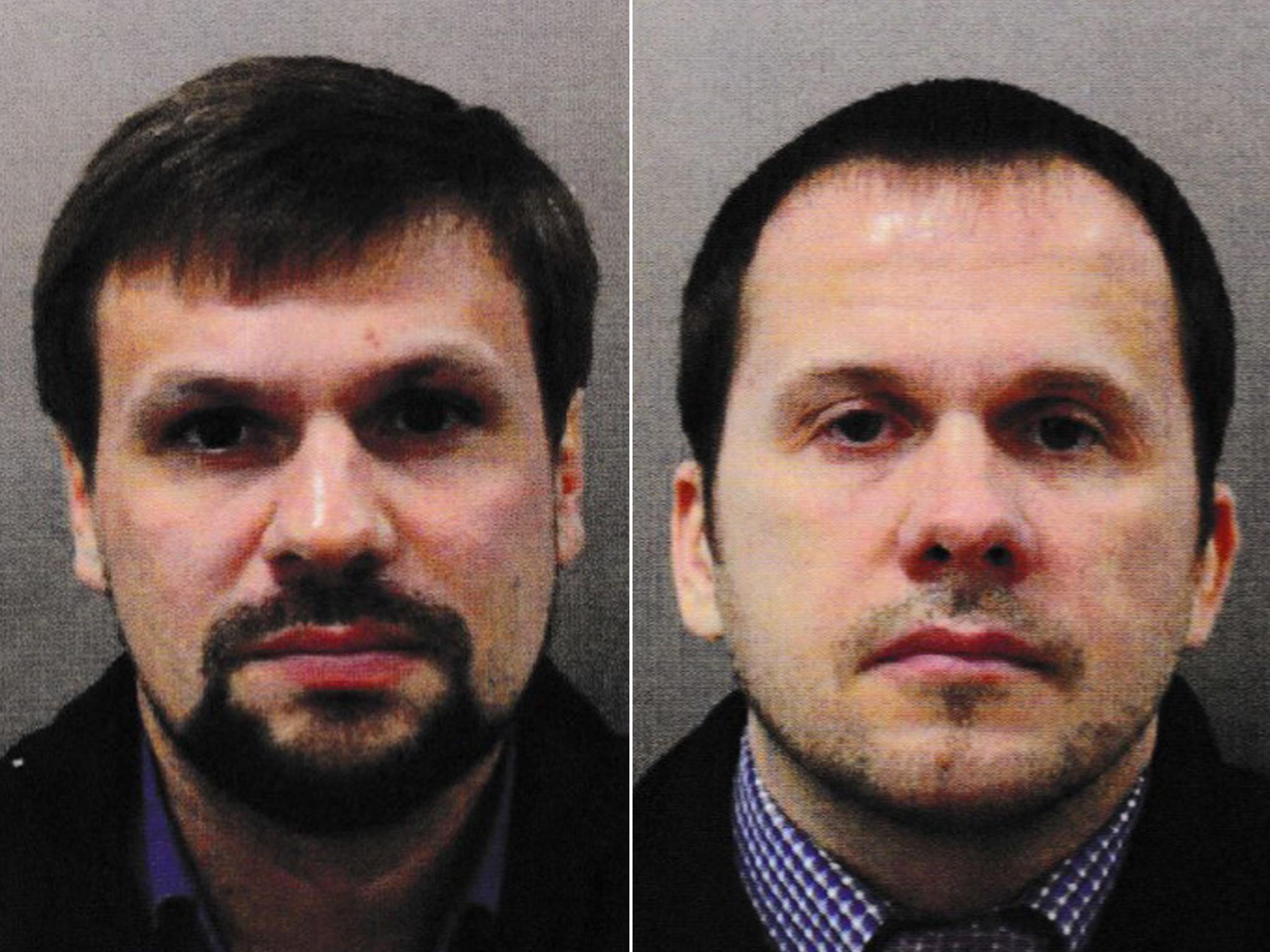Czech police searching for two men using names of Skripal poisoning suspects
Pair being sought in relation to munitions factory explosion in 2014 believed to have been conducted by Russia’s GRU spy agency

Police in the Czech Republic are searching for two men in connection with a 2014 explosion who used the same aliases as the two Russian military intelligence officers suspected of carrying out the 2018 poisoning of Sergei Skripal in the UK.
Alexander Petrov and Ruslan Boshirov were accused of using a novichok nerve agent to poison Mr Skripal, a former Russian asset, as well as his daughter in Salisbury. They and Moscow both denied involvement.
Now Czech police say they are seeking two suspects bearing the same name and likeness in relation to explosions at an ammunition depot in Vrbetice in 2014 that led to the deaths of two people, Prague-based newspaper Mlada fronta Dnes reported, citing police officials.
Czech police said Mr Petrov and Mr Boshirov, whose birth names British government documents have given as Alexander Mishkin and Anatoly Chepigas, had also used a Moldovan passport in the name of Nicolai Popa and a Tajik one issued in the name of Ruslan Tabarov.
Police said both men were believed to have been in the Czech Republic from 11 to 16 October 2014, the day of the explosion. They were first in Prague and later in the eastern regions, which is where the depot is based.
The announcement came after Prime Minister Andrej Babis and foreign minister Jan Hamacek announced they would be expelling 18 Russian diplomats over suspicions that Russian intelligence services were involved in the explosion.
“There is well-grounded suspicion about the involvement of officers of the Russian intelligence service GRU… in the explosion of the ammunitions depot in the Vrbetice area,” Mr Babis told a briefing shown live on television.
Mr Hamacek said 18 Russian embassy staff identified as secret service personnel would be ordered to leave the Nato country within 48 hours.
"I am sorry that Czech-Russian relations will suffer, however, the Czech Republic must react”, said the interior minister, who is currently also overseeing international affairs following the recent sacking of the country’s foreign minister.
A Russian lawmaker cited by the Interfax news agency called the allegation absurd.
The news outlet reported Vladimir Dzhabarov, first deputy head of the upper house’s international affairs committee, had dismissed Prague’s claims, adding Russia’s response should be proportionate.
Russia would not extradite the pair, Interfax said, citing an unnamed source.
"Russia's main law prohibits the extradition to a foreign state of Russian citizens accused of committing a crime on the territory of a foreign state," the source was quoted as saying.
Additional reporting by agencies
Join our commenting forum
Join thought-provoking conversations, follow other Independent readers and see their replies
Comments
Bookmark popover
Removed from bookmarks